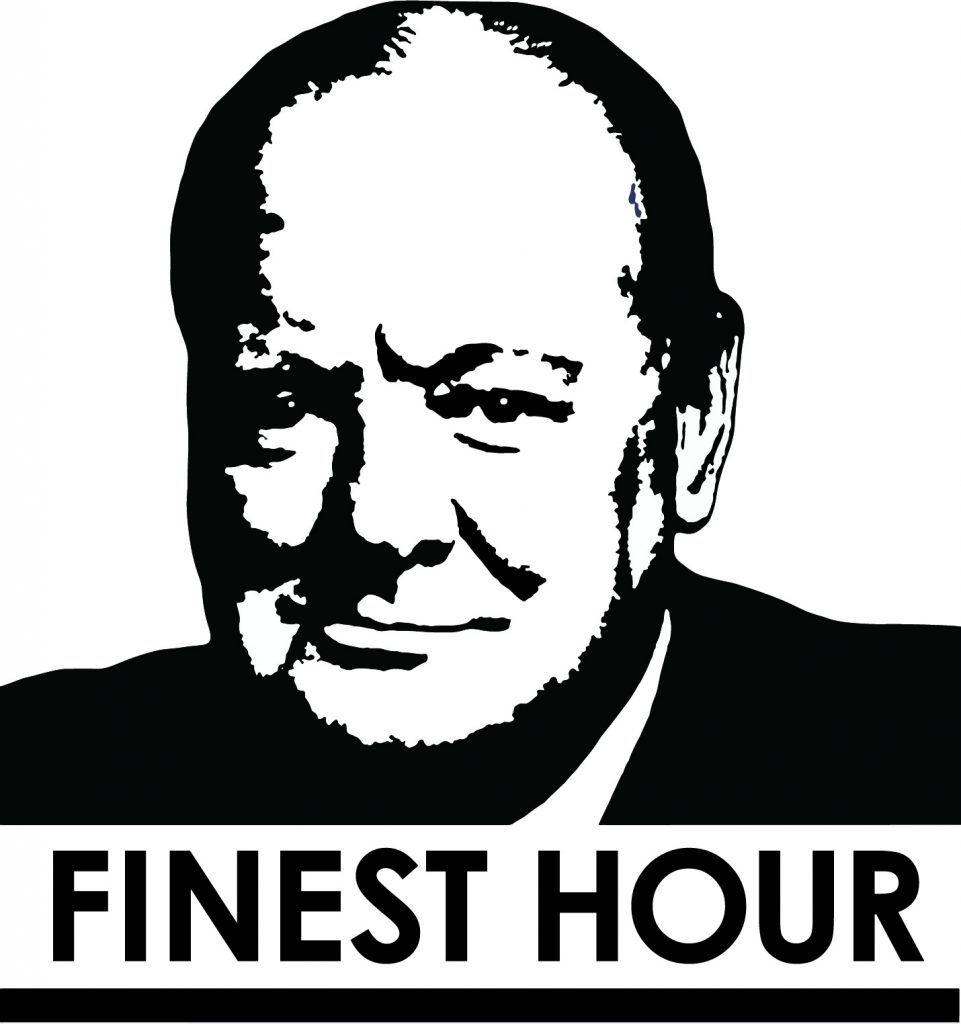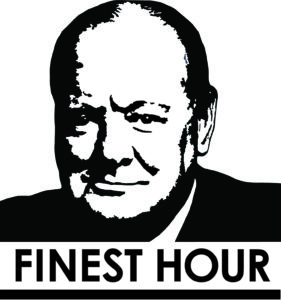Finest Hour 186
From The Editor – Finest Hour 186

March 30, 2020
Finest Hour 186, Fourth Quarter 2019
Page 04
By David Freeman, November 2019
Thirty years ago the Berlin Wall “came tumblin’ down.” The largely peaceful end to the Cold War came “quite suddenly and quite unexpectedly,” as Churchill once described the end of the First World War, to the relief of a world that had long lived in fear of nuclear war.
Churchill did not begin the Cold War— as early as 1943 Stalin was directing his armies with an eye towards building his Iron Curtain— but it was Churchill’s famous speech at Fulton, Missouri in March 1946 that alerted the world to the situation that had developed. Timothy Riley tells the story of how Churchill’s remarks at Westminster College were subsequently complemented by those of Mikhail Gorbachev in the aftermath of the Cold War. Edwina Sandys then explains how she conceived the idea for her sculpture Breakthrough that now stands near where her grandfather first outlined the “Sinews of Peace.”
Churchill accepted the invitation to speak in the Show-me State when he saw that it had been endorsed by Missouri’s most famous son, President Harry S. Truman. Alan P. Dobson looks at how Churchill tried working with Truman to preserve the special relationship, even as the Prime Minister took exception to details in the organization of NATO that he felt diminished British importance.
One of the most important strategic resources which Western leaders had to discuss was the development and deployment of nuclear weapons. Kevin Ruane explains how Churchill’s views on these weapons of mass destruction evolved over time. We also include extracts from the Churchill canon in which he considers the matter of nuclear diplomacy but finds reason to be optimistic for the world’s future.
Focus on the actions of Stalin and the Soviet leaders who followed him takes up so much of the literature about the Cold War that the initial fear of a resurgent Germany after 1945 tends to be overlooked. Klaus Larres examines how Germany fitted into Churchill’s own postwar calculations.
Finally, books about Churchill’s pre-war views of Germany during the age of Appeasement never stop coming, and W. Mark Hamilton looks at the latest by a promising young historian. We also have two reviews proving that Churchill continues to remain popular in the film industry. The first looks at Churchill’s own involvement with the producer Sir Alexander Korda. The second sees Churchill return to the popular series The Crown.
Subscribe
WANT MORE?
Get the Churchill Bulletin delivered to your inbox once a month.





